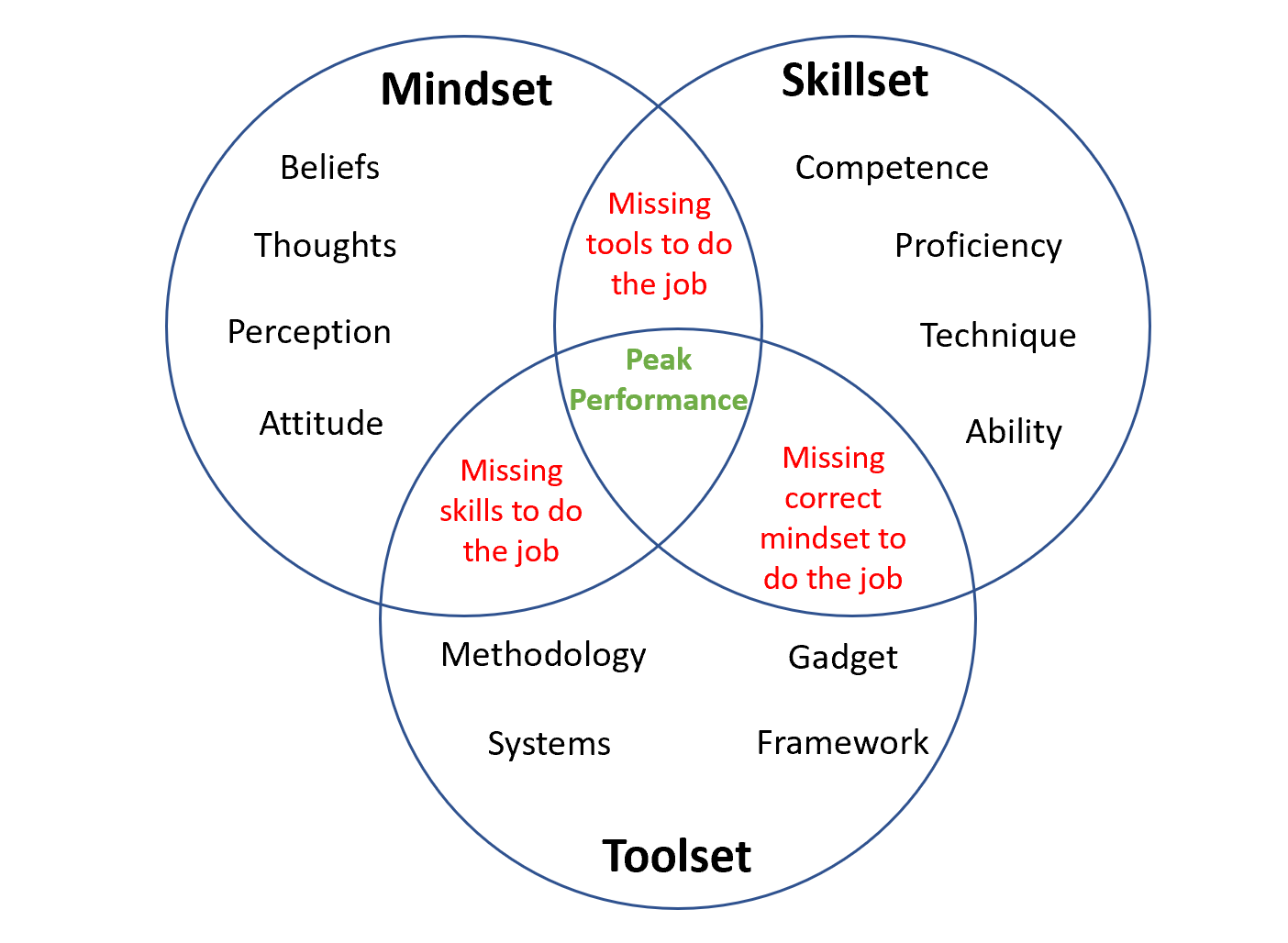Mindset, skillset and toolset in Product Management
What are they in product management? How do they interplay in this domain? This article will be dedicated to unpacking one of the fundamental foundations that I have been thinking about.
Introduction
When I first jumped into Product Management, there were many questions that I, as a junior product manager, usually sought for answers.
What skills should I acquire and train to be the best Product Manager (PM)?
What tools should I master perfectly to perform extremely well in day-to-day responsibilities?
What certificates should I pursue to set myself apart from the rest?
What are the best frameworks to master in product management?
And, so on…
No one has told me what sets great PMs apart from good PMs is Mindset.
My first article will be dedicated to unpacking one of the fundamental foundations I have long thought about.
Everything should begin with the definitions. Here are what I define as the three elements of the Triad.
Mindset refers to the attitudes, beliefs, foundational perspectives and thought processes that shape a product manager’s approach to “build and manage” his/her product(s).
Skillset encompasses the specific abilities, competencies, and expertise required, including both technical and soft skills.
Toolset includes the tools, technologies, methodologies, and resources needed to acquire, apply, and enhance the aforementioned skills.
Mindset
Mindset is a product manager's foundational perspective and thought process, and it shapes the other subsequent parts, i.e. Skillset and Toolset. Perhaps, this is the most important and difficult element to learn, to shape and to sharpen.
Popular mindsets that are well recognized among good and great product builders are the following traits:
Customer-centric: put the customer in the center of your thoughts and acts of building product.
Data-informed: dare question any assumptions, hypotheses, decisions with data and numbers (but don’t let this mindset surpass your customer-centric mindset)
Frugal and prioritizing deliberately: be resourceful in any actions and decisions, as well as choose the only important works to do and dare say No to unimportant ones.
Adaptable: embracing challenges, being flexible and adaptable to change.
Curious: maintaining curiosity and open-mindedness to explore new ideas and perspectives.
Growth mindset (and continuous learning): valuing feedback as a chance to improve and grow. Embracing continuous learning as a fundamental part of development.
Mindset, particularly in product management, is not a singular epitome. It is rather a set of traits which are mixed and molded altogether. Mindset can grow, and it can be changed gradually over the time.
Skillset
Skillset is the specific abilities and competencies required for a product manager to do the job effectively. It includes both technical skills (e.g. data analysis, road mapping) and soft skills (e.g. communication, problem-solving, collaboration). Sharpening many suitable skills allows product managers to execute their responsibilities and drive product success.
What I have observed from great product builders that they deliberately hone the following skills:
Thinking and understanding the customer rigorously through practicing design thinking and continuous discovery habit.
Analyzing data and providing actionable insights.
Critical thinking and rigorous decision making.
Clear and concise communication, both written and verbal.
Leadership in supporting and motivating cross-functional teams.
Project management to see products through development to launch.
Deliberate prioritization to juggle priorities and complete tasks efficiently with a frugal mindset.
Toolset
The toolset comprises the systems, software, and resources used by product managers to perform their duties. It includes tools for product planning, development, analytics, and communication. Product analytics tools, roadmap tools like Aha, ProdPlan or ProductBoard, Agile tools like Jira, and design thinking tools like affinity mapping are all part of the product manager's toolset. These tools enable product managers to efficiently manage the product lifecycle and collaborate with cross-functional teams using their trained skillset.
This is arguably the easiest element to obtain with adequate resource and budget.
How the Trio interplay
Years ago, I used to think the three elements are at the same equal importance which can be described as follows.
Success (in product management) = Mindset + Skillet + Toolset
I recently revised this thinking into this, what I call the Mindset-skewed equation.
Success = Mindset * (Skillset + Toolset)
This equation makes more sense to me in two reasons.
First, any skills can be taught and learned, and any tools can be bought. Two product builders might be equally skilled, and they might use the same toolset, and even build the same feature for the same industry, yet the one with the stronger mindset will produce greater results than the product builder with a weak mentality (aka mindset).
Second, the more things are going to be automated through technologies and machinery (think about Generative AI), the more that the human elements are going to be the difference. In this context, the mindset will amplify (or de-amplify) the benefits brought by skills and tools, or even dictate them.
In my conclusion, focusing on seeding and growing the right mindset is the biggest part, then choosing to learn and acquire enough skills and tools to become great in building products.




